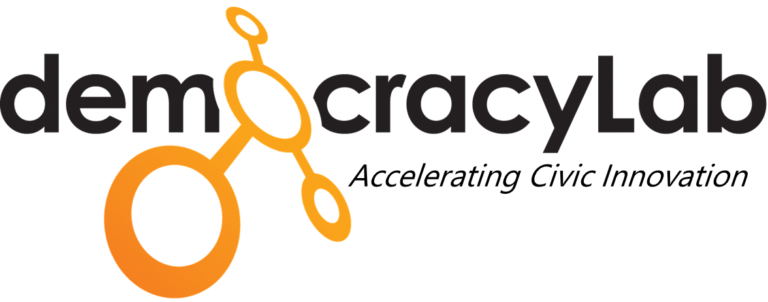
Unlike many people in the emerging field of civic-minded technology, Mark Frischmuth wasn’t spurred to action by the results of the 2016 election. Rather, he was rocked by the 2004 election. Back then, he became intrigued by the possibility of using the Internet to map connections among people’s values, objectives relating to specific issues, and policy preferences. Today, as the executive director and chairman of the Seattle-based non-profit DemocracyLab, he leads a team that builds infrastructure to empower the untapped potential of the civic tech movement.
CK: What does DemocracyLab do?
Frischmuth: DemocracyLab has built an open-source platform to help skilled volunteers connect to technology projects that advance the public good. Our platform is unique because it accepts projects in all stages of development and allows for fine-toothed filtering by skills needed and technologies used. One of the findings of our foundational research was that the connection between projects and volunteers needed to be made more efficient. Project owners often complained that the cost of onboarding volunteers exceeded the benefits, while volunteers said that many projects weren't organized well enough for them to be able to contribute effectively. We've designed our platform to nudge project owners to be as transparent and well-organized as possible to address help these concerns.
CK: What is civic tech?
Frischmuth: It has a couple of definitions that are fairly mainstream right now. One is, very broadly, technology for the public good. More narrowly, it is about technology used to empower citizens to make government more accessible, accountable, and efficient.

CK: How do you vet projects and ensure that they are really “technology-for-good?”
Frischmuth: We're relying more on market forces than we are on a thorough vetting process. Generally, the only people who want to put projects out are ones who feel like their project belongs on our platform. When a new project shows up, I reach out to the owner and try to schedule a discussion to help them best position their project, and to have their needs met.
CK: Can you describe one or two examples of successful collaborations that started on DemocracyLab?
Frischmuth: One project is “Ready, Set, Vote.” It’s a customized voter guide based on media sources that you trust. You go to their site, type in your address, and then you're presented with a list of media sources that you can select or unselect based whose opinion you value. Using your address, it will show you all of the races that you're going to vote on, and the endorsements of all of those media sources. Their platform has been successful, but has only available in King County in Seattle. Through DemocracyLab, they’ve been able to recruit a team of developers to rebuild the backend of their website so it can be used more widely.
Another example is Orcasound, a project which has both a hardware and software side. They have deployed sensors throughout the Puget Sound to monitor orca populations, and then they take that data and create ways to visualize it. They are working on machine learning tools to find meaning in the data that they're gathering. They've had great engagement through our platform as well.
CK: What impact do you envision DemocracyLab will have going forward?
Frischmuth: We continue to do hackathons every other month in partnership with Open Seattle and Seattle Tech4Good, another group of technologists who are working to advance social good. Having a regular cadence of events helps set expectations so people view us as a consistent and reliable partner in the community, and as a center of gravity for this type of work.
There's also something in Seattle called the Innovation Advisory Council, which has been convened by Mayor Jenny Durkan. It's a gathering of the area's largest tech employers who are contributing solutions towards problems in different areas: homelessness, education, and equity. It will be interesting to see what sort of collaborations become possible between the kind of grassroots activity we’re supporting and the top-down efforts being led by the Mayor’s office.
Longer term, we envision proving our concept in Seattle by helping more tech for good projects launch successfully. Once we’ve done that, we anticipate expanding to other communities and adding features to engage more stakeholders in the civic tech ecosystem. I believe that the incremental improvements and learning created by new projects will lead to the evolution of civic innovations that improve everyone’s quality of life and help address many of society’s most challenging problems.
Are you involved with an organization or effort that you think might be of interest to the ESAL community? Or have heard about an organization or initiative that you’d like to learn more about? Let us know here, and we may feature it in a future post.